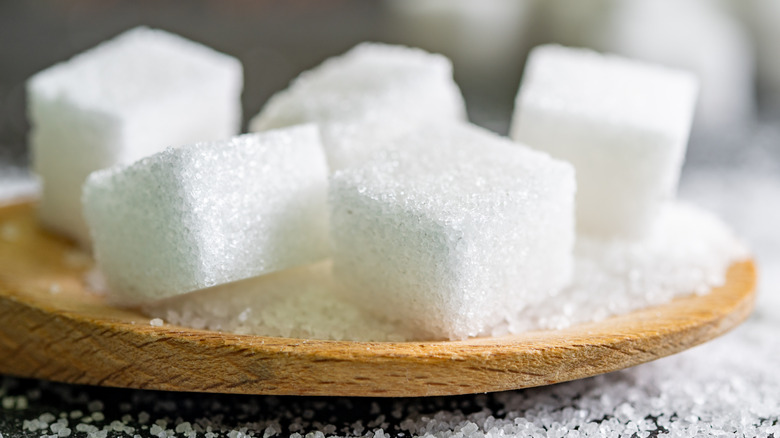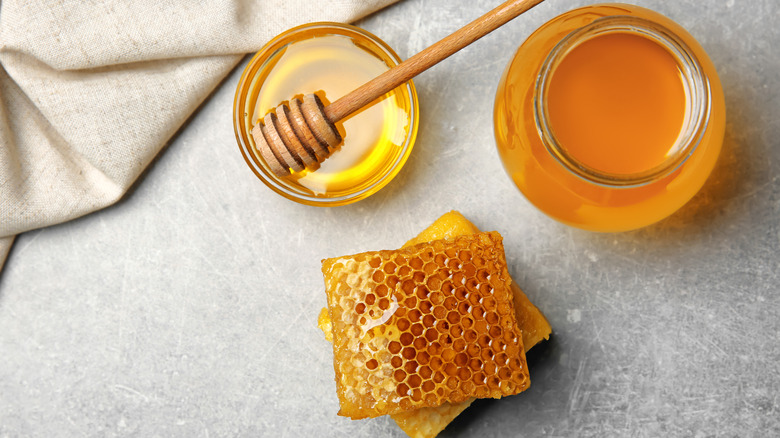Fructose Vs. Glucose: Which Is The Healthier Sugar?

The sweet world of sugar can be sour if you don’t fully understand the intricacies of sugar’s different forms. We think of sugar as affecting our bodies in weird ways if we have too much of it or it causing strong cravings, but your body can also react interestingly if you cut out sugar abruptly and completely. But what are the differences between various sugars?
According to MedlinePlus, each sugar is composed of its own unique formula of compounds, and you can tell something is a sugar because of the word’s “-ose” ending. Lactose, for example, is the sugar found in milk, while sucrose is the name for generic cooking sugar. Fructose, then, is the monosaccharide sugar found in fruits, honey, and other plants (via Food Insight) while glucose is a monosaccharide sugar that keeps the human body functioning (via Healthline).
“Along with fat, glucose is one of the body’s preferred sources of fuel in the form of carbohydrates,” Healthline explained. “People get glucose from bread, fruits, vegetables, and dairy products. You need food to create the energy that helps keep you alive.” Because glucose is the sugar the body requires, it’s the sugar that you measure if you have diabetes. If your glucose level runs too high or too low, it can greatly jeopardize your health.
Fructose can be bad for you despite popular opinion

For a sugar to be a monosaccharide, it must only contain a single sugar, meaning it dissolves into your bloodstream quickly. Both fructose and glucose are monosaccharides, per BBC goodfood, but they’re absorbed by the body differently. As the body’s main source of energy, glucose is tied to insulin and the pancreas, as insulin breaks down glucose. However, fructose is broken down by the liver and doesn’t spike your blood sugar levels in the same way that glucose does, making fruits safer to eat for those with diabetes.
When your pancreas releases insulin to take care of glucose, it also releases leptin and ghrelin, hormones that suppress or increase your appetite, respectively. Research has shown, though, that foods with lower levels of glucose, such as whole wheats, can suppress ghrelin, making you less hungry and less likely to eat more than you need. Fructose on the other hand, while not spiking your blood sugar levels as much, can be converted into fat and stored in your body if you consume too much for your liver to break down.
Ultimately, sugar should be consumed in moderation regardless of which you’re consuming. Fructose has been found to not be as great for us as originally thought, even being linked to Type 2 diabetes, per Healthline. Glucose is the sugar our bodies run on, so if you’re going to focus on just one sugar, focus on your glucose levels.
Source: Read Full Article


